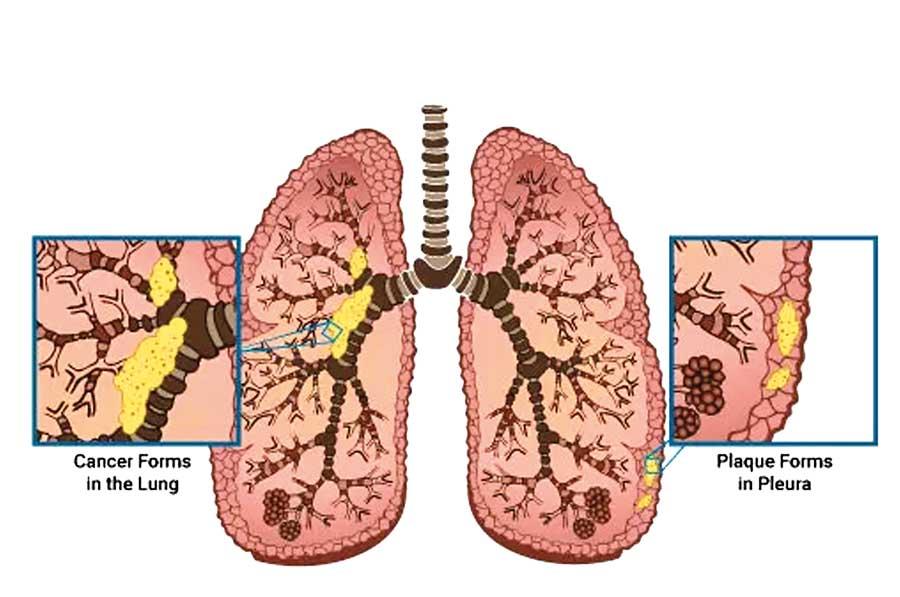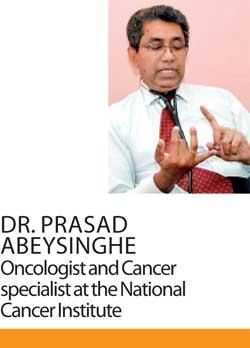01 Nov 2019 - {{hitsCtrl.values.hits}}

 What could be worse than suddenly getting diagnosed with cancer? Cancer is a disease that shatters all hopes of living. It is well known that cancer patients are mostly incurable and their treacherous lifestyle that is filled with many hardships, pain and sorrow is usually expected to end soon. There is little hope on being cured when diagnosed with this fatal disease.
What could be worse than suddenly getting diagnosed with cancer? Cancer is a disease that shatters all hopes of living. It is well known that cancer patients are mostly incurable and their treacherous lifestyle that is filled with many hardships, pain and sorrow is usually expected to end soon. There is little hope on being cured when diagnosed with this fatal disease.
Cancer includes a group of diseases that is caused by the uncontrolled growth of abnormal cells in the body. The over proliferation of these abnormal cells can greatly affect the body’s normal control mechanism. The spreading of these abnormal cells can also spread the cancer to other parts of the body as well.
‘Lung Cancer’ is one of the most dangerous and common cancers in the world and it is quite prevalent in Sri Lanka. November being ‘Lung cancer awareness month’, the Health Capsule decided to begin the month by serving its purpose and spreading awareness on the disease.
Dr Prasad Abeysinghe, Oncologist and Cancer specialist of the National Cancer Institute, explained about the lethal disease and the importance to create awareness about it in Sri Lanka.
WHAT IS LUNG CANCER?
Dr Abeysinghe explained that ‘Lung cancer’ is a cancer that arises in the tissues of the lungs due to the formation of tumours by the uncontrolled multiplication of abnormal lung cells. It starts to form in the lungs or related structures and may spread to other parts if not treated on time.
The lungs contain two tube like structures known as bronchi. These bronchi divide into smaller ‘bronchioles’. Cancer can develop in these tubes. They are generally known as squamous cell carcinoma of the lungs.
Dr Abeysinghe stated that different types of lung cancers exist. He said that that the major type of lung cancer arises in the bronchi. It is usually the squamous cell carcinoma that develops there.
The other major type of lung cancer arises in the periphery of the lungs where oxygen transfer takes place. This is known as Adenocarcinoma.
CAUSES AND RISK FACTORS
Dr Abeysinghe stated that the majority of lung cancer is caused due to smoking. Smoking tobacco is the leading cause for lung cancer and most deaths caused by it.
However, being a non-smoker will not be of any favour if the smoke is breathed into the lungs from the atmosphere. Therefore, both active and passive smoking is harmful to the lungs.
While most patients with lung cancer are smokers or former smokers, many others have never smoked at all. These patients become victims of lung cancer due to the exposure to various carcinogens.
People who are exposed to harmful substances such as radon, asbestos, diesel exhaust and silica particles may also have the risk of developing lung cancer due to damage to the lung tissues.
Other factors such as air pollution and certain chemicals also contribute in developing lung cancers.
Inhalation of such substances in work places are quite common. Asbestos, arsenic, chromium, nickel, cadmium, tar and soot are a few substances that are present at certain work places that may increase the risk of lung cancers.
When silica particles are inhaled, it promotes the development of pulmonary fibrosis that becomes a risk to lung cancer if continued for a long time period with no treatment.
If exposed to radon gas, the radon gets into the lining of the lungs and gives of radiation. This damages the cells and eventually leads to lung cancer.
Dr Abeysinghe also mentioned that there are patients who get lung cancers with no obvious cause or explanation. They are spontaneous and may be caused due to certain higher advanced agents.
Dr Abeysinghe further explained that as people grow older, they are more prone to get lung cancer. Furthermore, the lungs can get scarred due to other conditions such as tuberculosis. Hence, the damaged lung tissues can turn into cancerous tissues as well.
SYMPTOMS AND COMPLICATIONS
Dr Abeysinghe explained that symptoms may only show at the latter stages of the disease.
“Lung cancer in its earlier form may not show any symptoms. However, as it develops further, the symptoms can be identified,” he stated.
Dr Abeysinghe explained that the air passages of the lungs can get blocked and lead to difficulty in breathing. This causes chronic cough.
Coughing up blood and ‘rust coloured’ phlegm is also a major symptom.
Frequent chest infections may also develop and give rise to chest pains and shortness of breath due to trapped phlegm and blocked air passages.
Dr Abeysinghe explained that pains in the bones are symptoms that arise in the advanced stages of the cancer when it has spread to other structures adjoining the lungs.
He also said that the lining between the lung and chest wall, known as the pleural space, can get filled with fluid and cause pleural effusion. Pleural effusion causes compression of the lungs and decreases lung functions and increases the risk for pneumonia.
“It causes the lungs to collapse and cause difficulty in breathing,” he said. “Sometimes the patients can show entirely different symptoms”
Severe headaches and paralysis are symptoms that are caused due to the spread of the cancer to the nervous system. It can further spread to the brain, liver, bones and glands as well.
Difficulty in walking arises as a symptom in the advanced and incurable stage of the lung cancer. Pain in ribs and chest muscles can occur as well.
Lung cancer also affects the heart and eusophagus.
DIAGNOSIS
Early detection of the cancer is very important for the treatment to become successful.
“Usually any cancer is diagnosed by taking a piece of the cancerous tissue and examining it under the microscope,” Dr Abeysinghe explained.
However, in the instances where the cancer exists inside of the lungs, a special camera is sent through the air passages. This is known as bronchoscopy. The camera will examine the air passages and detect any abnormal cancerous cells if present.
This also allows the doctor to remove a small tissue sample.
However, not all cancers can be diagnosed by bronchoscopy. Lung cancers that occur in the periphery require ‘needle biopsy’ where a needle is passed through the skin and the area is localized in order to acquire a tissue sample.
TREATMENT
Treatments for the early form of lung cancer can be done by surgery to remove the cancer cells from the body. However, if the disease is at an advanced stage, radiation treatment and chemotherapy treatments can be done.
“There are certain targeted treatments that are now available when cancers spread to other structures,” Dr Abeysinghe explained.
There are certain tests that can be conducted to check if alterations have occurred within the body. If the changes are present, tablets and capsules are provided to control the condition.
Unfortunately, these conditions may not be curable.
According to Dr Abeysinghe, only 10 - 15% patients of lung cancer are cured and the rest usually die of the disease.
PREVENTION
Dr Abeysinghe stated that the most important step that should be taken is the ‘prevention’ of the disease.
Prevention helps to ensure the safety of the people and avoids the risk of increasing new cases of cancers in the population. It will also lower the number of deaths caused by cancer.
He advised to avoid active and passive smoking. If a smoking habit exists within a person, it is best to quit before the cancer develops so that the damaged lung tissues can gradually repair itself.
Dr Abeysinghe further advised to stay away from tobacco and avoid or limit the exposure to cancer causing agents that are present in certain workplace environments and polluted atmospheres.
Healthy living and consumption of proper food that includes lots of fruits and vegetables are important in avoiding any kind of diseases including the risk of getting cancers.
It is also important to avoid becoming overweight which is another risk factor of lung cancer.
Daily exercise helps prevent the risks for many diseases including lung cancer.
It is also important to keep the environment and the surrounding atmosphere clean and pollution free as high levels of air pollution may lead to many health issues including lung cancers.
Dr Abeysinghe further advised to avoid unnecessary radiation such as X-rays and CT scans.
21 Dec 2024 21 Dec 2024
21 Dec 2024 21 Dec 2024
21 Dec 2024 21 Dec 2024
21 Dec 2024 21 Dec 2024
21 Dec 2024 21 Dec 2024